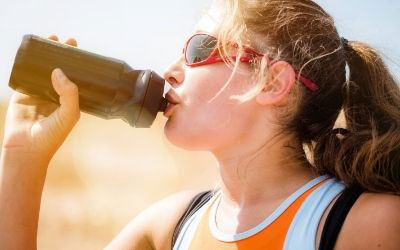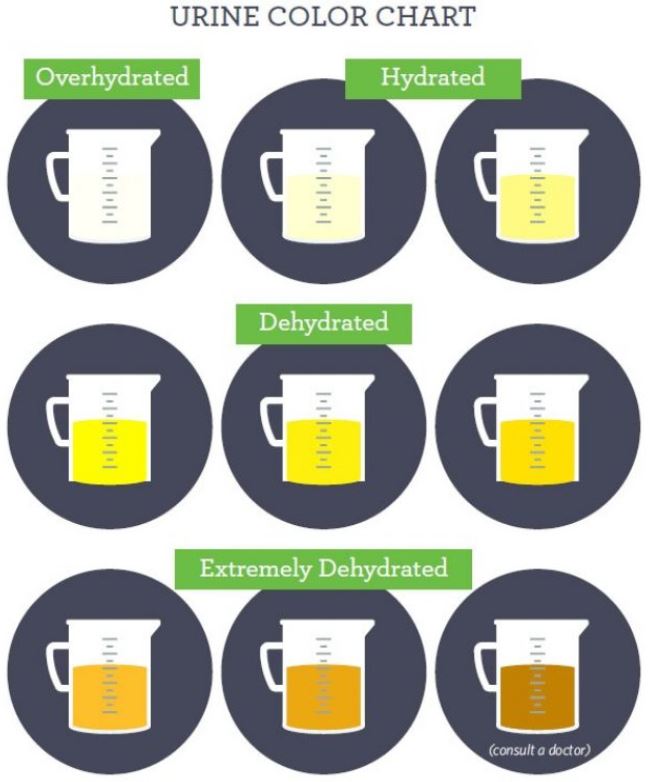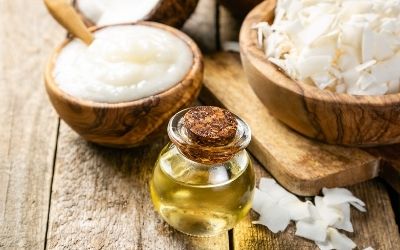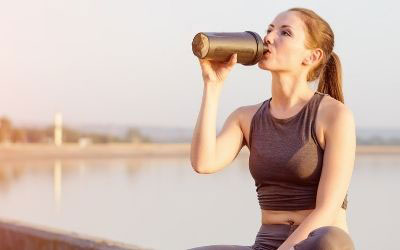How to stay hydrated as an athlete?
- By Bea Recuerdo (BSc)
- 10 Sep 2021


Athletes, bodybuilders, and people who like to work out spend hours of training and exercise on improving endurance, performance, and muscle gain. One of the factors that can affect endurance and performance is hydration. When we hear about hydration and exercise, it seems like an obvious topic, right? But actually, not everyone knows how much fluid they need to hydrate properly.
Why is hydration important to athletes?
Hydration is a nutritional concern for athletes. Good hydration is essential not only for athletes but even those doing simple and light exercises.
Being hydrated means that you're getting the right amount of water before, during, and after exercise or training.
Water helps with various body functions such as:
- Maintaining optimal body temperature during exercise
- Allowing muscle contractions to take place and lubricating the joints
- Supporting transport nutrients to give your energy and keep you healthy
(Source: Family Doctor & Sports Dietitians Australia)
According to studies, maintaining the optimal hydration level, or what we call a "Euhydrated state," has been proven to help increase physical performance in aerobic, anaerobic, strength, and power activities. A hydrated body allows athletes to lower body temperature, reducing fatigue and improving heart rate, brain function, and even immune function.
(Source: University of Connecticut & USADA)

How does dehydration affect athletic performance?
Approximately 60% of the body is water. As a person trains and exercises, they lose water every time they sweat and breathe. When sweating, water and electrolytes such as potassium and primarily sodium are excreted through the skin. Sweating is a way for the body to reduce the risk of heat stress and maintain normal muscle function. However, when the water is not replenished, this can cause dehydration and decrease blood circulation in the body, and can:
- Reduce the amount of oxygen being received by the exercising muscles
- Consequently, it can exhaust the athlete quickly
- By-products of exercise are not being flushed out of the body properly
- Increase the risk of heatstroke
(Source: USADA)
Based on research, losing 2% of the total body weight can negatively affect athletic performance. We can identify this by calculating a person's sweat rate. But most importantly, we should know the steps on how to prevent dehydration.
(Source: USADA, Hydration Tips)

How to Prevent Dehydration
Monitoring your fluid loss is an essential step in keeping yourself hydrated. Your body doesn't have a reservoir for water. This is why we need to replenish the fluid being lost every day. Presently, no scientific studies specify the best way to know your hydration status (Source: University of Connecticut). Still, you can use these tips to keep yourself hydrated and prevent dehydration:
1. Do not rely on thirst
Most athletes wait until they're already thirsty before drinking water, when in fact, thirst is a sign that you are already dehydrated. Most athletes don't feel thirsty not until more than 2% of their body weight has been lost. Waiting until you are thirsty can already affect performance. (Source: USADA)
2. Checking your Urine Color
One parameter of knowing that you are hydrated is by monitoring your urine color. You can rely on this urine color chart for reference:
Photo from: Fluids & Hydration from USADA (Source: USADA)
3. Staying Hydrated during training/competition
Computing your sweat rate is one way of knowing how much water you need during training. Here is a step-by-step process in calculating your sweat rate:
- Before the workout, make sure that you are hydrated. Check the color of your urine, and if it's light yellow (lemonade-like color), it is an indicator that you are hydrated.
- Before starting, weigh yourself nude or in light clothing.
- Exercise for an hour, then refrain from drinking or, if you need to drink water, weigh the water you are to drink.
- After the workout, take another nude or light clothing body weight and calculate the difference between your pre and post work out the weight. If water was consumed, subtract the water weight to the value.
- For every 2.2 lbs. a person loses, 1 liter of fluid is lost. So let's say a person loses 4 lbs. in an hour. Their sweat rate is 4/2.2 = 1.8 liters/hour.
After knowing this, your goal is to try and reduce body mass loss by less than 2%.
(Source: University of Connecticut and Sports Dietitians Australia)
4. Knowing how much water you need to drink after exercise
A person's sweat rate can differ depending on the intensity of the physical activity is done. Their fluid requirement can range from one liter per hour to as much as three liters per hour. (Source: University of Connecticut)
You can use this calculation to know how much water you need after exercise:
Pre-exercise wt (kg) – post exercise wt (kg) x 1.5 = Fluid Needs for Replacement per ACSM (American College of Sports Medicine) Guidelines.
Keep in mind that for every 1 kg (2.2 lbs.) loss, you should drink an additional 1 L of fluid. Here is a table for your reference:
|
Fluid Replacement after Exercise |
|
|
BM Loss |
Fluid Needed |
|
0.5 kg (1.1 lbs) |
0.5 L |
|
1 kg (2.2 lbs) |
1 L |
|
1.5 kg (3.3 lbs) |
1.5 L |
|
2 kg (4.4 lbs) |
2 L |
|
2.5 kg (5.5 lbs) |
2.5 L |
|
3 kg (6.6 lbs) |
3 L |
You can use these steps to know how much water you need. This is very helpful during:
- Hot seasons
- Conditioning and pre-competition seasons
(Source: University of Connecticut)

Is it okay to drink too much water?
Overhydration or too much water intake can rarely happen to athletes. But when it does happen, it can potentially affect an athlete's performance. Too much water intake can reduce sodium in the body. Sodium plays a vital role in water retention for healthy athletes, maintaining blood pressure levels during physical activities. (Source: Sanford Health) Overhydration can cause "Hyponatremia" or lack of sodium in the blood.
Symptoms of Hyponatremia include:
- Dizziness
- Headaches
- Disorientation
- In worst cases, it can lead to a coma
Source: Sports Dietitians Australia

What should athletes drink to hydrate?
Water is one of the most common sources of hydration. Water is perfect for those who train and work out for only an hour or less. This is because not many electrolytes and carbohydrates have been excreted. However, this may not be the case for people who sweat heavily or undergo intense training for more than an hour.
This is why we have alternative hydration sources like fluid replacement drinks. (Source: University of Connecticut & USADA)
Fluid Replacement drinks
Ideally, a fluid replacement should at least:
- A drink that tastes good
- A drink that does not cause any stomach problems or distress when consumed in large volumes
- A drink that promotes rapid fluid absorption
- A drink that provides electrolytes and enough energy for intense training and competitions
Sports Drinks are a classic example of a fluid replacement drink. Sports drinks provide 6-8% carbohydrates that water cannot. Research shows that a sports drink can also help maintain blood glucose levels and decrease the risk of muscle glycogen depletion. This helps carbohydrates contribute highly to energy levels.
Furthermore, sports drinks contain sodium that can help retain water. Without sodium, a heavy intake of fluid can lead to frequent urination instead of fluid retention. Ideally, an 8-ounce sports drink should at least contain 110 mg of sodium.
But take note that a sports drink with more than 8% carbohydrates is no longer necessary. In the long term, it can affect the body negatively and even upset the stomach for some.
(Source: University of Connecticut & USADA)
Coconut Water
Coconut water is one hydration source that is being studied to be a hydration source for athletes. It contains less sugar compared to sports drinks and contains potassium. However, it does not contain sodium which is essential for water retention in athletes.
Although one study suggested that sodium-enriched coconut water would be a better hydration source, in the study, the sodium-enriched coconut water did not cause nausea. It offered better moisture tolerance than water and regular coconut water and was just as good as taking commercial sports drinks (Source: NCBI)
Other Hydration sources
Energy drinks have been one of the rising athletic hydration drinks in the industry. This is because of the caffeine content in the drinks. However, it is not advised to replace sports drinks with caffeinated energy drinks. (Source: UOFM). Furthermore, carbonated beverages aren't also advised because they are high in sugar and can even cause stomach upset. (Source: USADA)
Bottomline
As an athlete, hydration is a vital nutrition concern to help maintain and improve performance and endurance. There is no definite and best way to know your hydration status, but these tips can be helpful:
- Not relying on thirst
- Monitoring your urine color
- Knowing your sweat rate
- Knowing how much water you need during and after training







